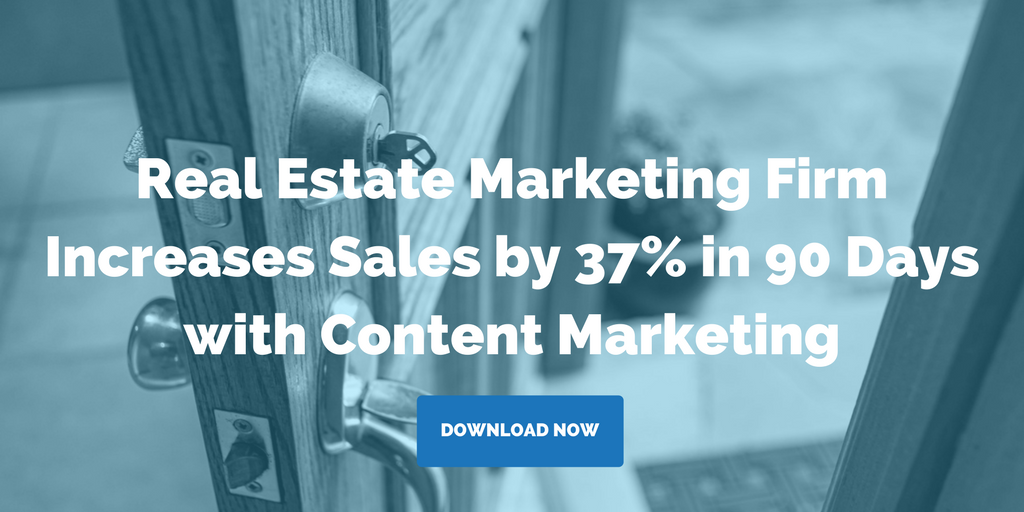Archive for Elizabeth Hines

How Will Facebook Marketplace Housing Affect Real Estate Marketers?
Facebook Marketplace has added a Housing section, which lists property for sale and property rentals.
If you’re a real estate marketer, Facebook’s newest foray into the social marketplace is likely to impact your strategy. In November, the ‘Book announced that it would begin allowing users to search for housing rentals and sales on its Marketplace platform.
For those who are unfamiliar, Marketplace is Facebook’s answer to Craigslist — a platform that lets users buy and sell items near them. The new housing section allows individuals —including brokers, agents, and property managers — to list their available properties. Additionally, the company has partnered with Zumper, Apartment List, and other third-party sources to add “hundreds of thousands” of rental listings.
Listers can add 360-degree photos so potential buyers and renters can take a virtual tour from the comfort of their couches. Those searching for properties can filter by location, price, number of bedrooms, square footage, etc.
Facebook’s Bowen Pan says, “Marketplace is a popular place for people to look for a home to rent. Now that we’re adding listings from Apartment List and Zumper, people can search even more options in the U.S. to find a place to call home.” The company aims to “bring ease and convenience to customers” with this addition.
How should you approach Facebook Marketplace?
As a real estate marketer, this presents another opportunity to get your property in front of potential buyers and renters. Here are some points you need to know to successfully list your property on Facebook Marketplace Housing.
User search criteria
Facebook is using its powerful search algorithm to let users narrow their rental search based on location, price, size, number of bedrooms, and even if an apartment is pet-friendly. This means making sure all your listings have accurate and specific details. The more specific you get, the more your target audience can find you.
Facebook is location specific
As with Craigslist, Facebook Marketplace lets users select and search within their area. More than likely, you’re already keeping track of demographic data for your target buyer or tenant base. Make sure that as you list your properties on the sites that Facebook pulls from, or on Marketplace itself, that you’re keeping in mind that target demographic, and including location markers that will help your property show up in their searches.
Facebook’s goal is to be a one-stop shop
If you’re aware of this fact, it can help you. Facebook is positioning Marketplace to become a one-stop commerce platform for food, shopping, and even job hunts. How does this impact your marketing efforts? Know that when users come to Marketplace, they are primed to be interested in all aspects of their housing prospects — from dining to neighborhood attractions to community events.
This is where your content marketing strategy comes into play. By providing content about various types of information about the area surrounding your listing (top restaurants, employers in the area, what to do on a weekend, etc.), you’re poised to capture the lasting attention of your potential buyers or tenants.
Related posts:
- What Metrics Should You Track in Real Estate Marketing?
- Top 10 Real Estate Marketing Posts 2017
- 4 Tools for Determining the Best Time to Post on Social Media for Your Property
Archive for Elizabeth Hines

What Metrics Should You Track in Real Estate Marketing?
Our monthly marketing reporting template for real estate will help you measure success, drive strategy, and demonstrate ROI.
Traditional real estate marketing involved a lot of “post and pray.” That is, marketers would place ads in local publications, on billboards, and with other traditional media outlets and hope that buyers and tenants would read them and take interest.
With digital marketing, we can do so much more. Real estate marketers can measure the success of their efforts — if they’re tracking the right numbers.
Measuring success
To effectively sell or lease property, you need to take a comprehensive, data-driven approach to marketing. Metrics enable you to measure success, drive strategy, and demonstrate the ROI of your marketing efforts.
You need to know that what you’re doing is working (or not) so that you can adjust your marketing strategy as necessary. And you need a visual, executive-friendly way to show your bosses or investors that the marketing dollars you’re spending are paying off. We’ve got you covered.
Monthly marketing reporting template
We’ve created a monthly marketing reporting template just for real estate businesses. This template tracks your marketing metrics and generates graphs you can use in reporting and presentations.
Metrics captured in the template include:
- Total website visits
- Website visits by source
- Leads
- Leads by source
- Investors
- Investors by source
- Visit-to-lead conversion rate
- Lead-to-investor conversion rate
- Ranking
- Competitive analysis
The template (an Excel document) will save you time figuring out which metrics to track… not to mention, how to present them to your boss/investors. It’s very easy to use, but feel free to reach out to us if you have any questions or need us to walk you through it. We’re here to help.
Start tracking the right metrics in real estate marketing and improve your marketing efforts by downloading our Monthly Marketing Reporting Template below.
Related posts:
-
The Metrics You Should Be Measuring in Real Estate Marketing (Hint: Not Vanity Metrics)
-
Social Media Can Be a Strategic Weapon in Real Estate Marketing
- How Pay-Per-Click Helped This Property Get 54 Leads
Archive for Elizabeth Hines

Top 10 Real Estate Marketing Posts 2017
Here are Fronetics Real Estate’s most-viewed real estate marketing posts from the last year.
2017 was an exciting year for Fronetics Real Estate. We officially launched our brand, and website, in September. But despite our relatively recent kickoff, FRE is an entity born out of a longstanding expertise in real estate marketing. We have been working with residential and commercial real estate clients for many years under our parent brand, Fronetics.
It is that expertise that we aim to provide for the readers of the Fronetics Real Estate blog. This year, the following have been our most-viewed posts.
Top 10 real estate marketing posts
1) Using Content Marketing to Market and Sell Luxury Real Estate
In real estate sales, you want people to find your properties, like what they see, and ultimately be moved to purchase. In other words, you want to attract visitors, convert visitors to leads, and convert leads to deals. Innovative luxury real estate firms are finding ways to leverage digital tools to guide more buyers down that path to purchase. Read more
2) This Is How Often Real Estate Companies Should Post on Social Media
With social media networks changing daily, it’s hard to keep up with where to distribute content, much less how often. Countless studies have attempted to solve the social-media-frequency equation. And while audiences vary across price points and regions, best practices give us some general guidelines. Here’s our assessment of social media posting frequency. Read more
3) The Metrics You Should Be Measuring in Real Estate Marketing (Hint: Not Vanity Metrics)
Whether renting a new property or launching a social media campaign, we look for instantaneous numbers that will affirm we made the right choices. But here’s the problem: not all metrics are created equal. So-called vanity metrics are measurements that have no bearing on your bottom line but can give you an inflated sense of success. Read more
4) Learn How Content Marketing Increased Real Estate Sales by 37% in 90 Days
Consider this case study of a leading real estate marketing firm who chose to use digital and content marketing to shake up their traditional marketing approach. After just three months of beginning a digital and content marketing program, the firm recognized significant gains in web traffic, social media engagement, and brand exposure. Read more
5) This Is the First Thing You Should Do in Real Estate Marketing
Content marketing is one of the most effective ways to elevate your property’s reputation in the market, reach prospective buyers or tenants, and increase occupancy. Yet while many real estate marketers are using content marketing, not all feel their efforts are successful. Why do so many organizations feel they are failing? Simply put, they do not have a documented strategy in place. Read more
6) Real Estate Firm Grows Sales by 300% through Content Marketing
this case study about a prominent real estate marketing firm in one of the most competitive markets in the U.S. When traditional tactics weren’t bringing in the kind of business needed to sell 1,500 new-construction homes in a new planned community, the firm turned to a new content marketing program to increase web traffic and build brand awareness. Read more
7) Social Media Can Be a Strategic Weapon in Real Estate Marketing
The real estate industry is built on relationships, partnerships, cooperation, networks, and communication. Being social is a key part of forging a successful real estate marketing strategy. It’s time for the industry to embrace the tools that social media platforms offer. Read more
8) Paid Digital Advertising: A Beginner’s Guide for Real Estate Marketers
By investing in paid digital advertising, you can boost the reach of your posts, display ads, and videos. Pair quality content with a comprehensive digital advertising strategy, and you will be in a position to drive more traffic, create more brand visibility, and sell or lease more properties. Read more
9) 6 Signs It’s Time to Consider Outsourcing Your Real Estate Marketing
Real estate companies are increasingly open to outsourcing real estate management because it allows them to focus on their core competencies while improving effectiveness. So why not apply the same rationale to bolster your marketing efforts? Don’t be afraid to look outside the box for the marketing tools you need to succeed. Read more
10) 5 Tips for Building a Successful Real Estate Social Media Marketing Program
Social media is an excellent tool for real estate marketers to communicate with residents/tenants, build brand awareness, gain market intelligence, and even identify prospective tenants or buyers. Particularly if the latter is your focus, it’s easy to celebrate every follower you earn as a marketing success. But it’s important to remember that a social media follower doesn’t necessarily equal a buyer/tenant. After all, participating in social media is not only about earning a large following; it’s about building relationships with those people. Read more
Runner-up posts:
- 4 Tools for Determining the Best Time to Post on Social Media for Your Property
- Start Your Property’s Social Media Program in Six Steps
- These are the Busiest Day of the Year for Real Estate Searches
Archive for Elizabeth Hines

Facebook Lead Ads: Why Your Property Should Use Them
Facebook Lead Ads allow prospects to leave their contact information without ever leaving Facebook or Instagram, increasing the chances of conversion.
On pace to hit 2 billion users this year, Facebook obviously has reach. Yet only 45% of B2C marketers feel that their Facebook marketing efforts are working. So why is Facebook advertising not showing a greater ROI for your business?
Well, what kind of ads are you running? Are you using lead ads? If not, that’s probably one of the reasons.
How Facebook Lead Ads work
Facebook lead ads allow you to run lead-generation campaigns on Facebook and Instagram. This kind of social advertising shows an ad for your property within the newsfeeds of potential buyers and renters. Just set the parameters (e.g. demographics, location, etc.) for your target audience, and the network’s algorithm will identify who sees the ad based on information they’ve provided in their profiles.
But here’s the real kicker: Unlike other ad types, lead ads include a contact form that lets prospects show their interest by filling out the form with their details without ever leaving Facebook (or Instagram).
Need more convincing? Here at Fronetics Real Estate, we find Facebook Lead Ads one of the most effective for generating leads. Because they streamline the process through which prospects sign up to learn more about your property, it’s more likely they’ll convert to leads. Besides, you save time and money because you don’t have to create extra landing pages to get their contact information.
Lead generation made easy
These days, people expect that everything from shopping to job searching can be done on their handheld devices. Facebook Lead Ads make that true for people wanting to learn more about potential properties.
Here’s how it works: Prospects click on a lead ad, and their contact information automatically populates based on information from their profile. No leaving Facebook to visit the property’s website or taking the time to provide contact information necessary. Lead ads make submitting information as easy as two taps on a phone: one to open the ad, and one to submit the information.
“If you want to iterate through lead forms quickly, Facebook Lead Ads are a great way to collect the information without building new landing pages and creating tons of copy,” says Tony Adams in Visible Factors. “The contact forms appear natively on Facebook and Instagram. You can easily use them to sign people up to newsletters for drip marketing campaigns.”
In a prime success story, news and information site theSkimm wanted to expand its reach and increase its conversion rate, with the ultimate goal of attracting more highly qualified leads and significantly increasing its subscriber pool. After testing a number of different tactics, theSkimm created a series of Facebook Lead Ads. The ads featured the company logo to reinforce its branding and a ‘Subscribe’ link inviting people to sign up on the spot. The result was a 22% increase in lead quality at a cost per acquisition of just $1-2.
Creating and modifying your ads
As buyers continue to turn to their handheld devices for quick, easy information, Facebook lead ads will give your property the opportunity to capture new leads with the click of a button. But just like any form of lead generation, you need to monitor and tweak your Facebook Lead Ads for optimal results.
Through Facebook’s Ads Manager reporting interface, you can obtain reports about cost, impressions, and clicks. As with all marketing tools, consistent refinement is the key to success, particularly in real estate marketing. Lead ads can easily be fine-tuned to cultivate a larger target audience.
Facebook Lead Ads provide real estate businesses an opportunity to gain leads and a larger reach. If you haven’t tried this yet, we highly recommend switching over some of your social advertising budget.
Related posts:
- 6 Social Media Don’ts for Property Management Companies
- Start Your Property’s Social Media Program in 6 Steps
- Social Media Can Be a Strategic Weapon in Real Estate Marketing
Archive for Elizabeth Hines

6 Social Media Don’ts for Property Management Companies
Committing these social media don’ts when managing a property may get you in a heap of trouble.
It’s easy to get bombarded with suggestions on how to interact with your audience on social media. In fact, social media can be particularly tricky for property managers: for example, many tenants will bash your property for all the world to see for small issues or in an attempt to get a free month of rent.
But amid the endless barrage of ideas for what to do, it’s worth remembering that not all social media engagement is equal. Just as shying away from social media isn’t a good strategy, it’s also important to remember what not to do.
Let’s look at 6 specific don’ts for keeping your proverbial foot out of your business’ mouth online:
Social media don’ts for property managers
1. Don’t assume that just because you’re online, offline rules of communication and conduct don’t apply.
It may seem obvious, but it’s all-too-often forgotten. This is a good rule, and an easy metric by which to judge any content before posting: Your interactions with current and potential tenants online should measure up to professional interactions you would have in person.
2. Don’t re-post, re-tweet, re-gram, or re-share external content without a thorough check first.
Re-posting content that’s of interest to your audience is a great way to promote discussion and engagement, especially for the highly social business of real estate marketing. But don’t get sloppy. Remember that even if content didn’t start with you, if it’s posted on your property’s social media accounts, it represents your business, and can reflect on your property and professionalism. Make sure content is well-researched and from reliable sources. Want to re-post something controversial? Just be sure to include a disclaimer or explanation in your post.
3. Don’t forget that emotional intelligence is just as important for businesses as for individuals.
This one is especially key for real estate marketers, since real estate decisions are so personal. Never forget that behind every social media account is a human being. The bottom line: “Bring emotional intelligence to your social media management. Take the time to address any issues with compassion and understanding.”
4. Don’t ignore comments.
Social media is all about engagement with your audience. Yes, responding to every comment takes time and resources, but it is well worth the effort. A comment ignored sends the message that you don’t feel that your reader’s question, concern, or observation is important. Use comments as the opportunity they are to interact with your followers, and show them that you are ready and willing to address any issues they may have.
5. Don’t delete negative comments.
Another cardinal sin for real estate. Once it’s online, trust that people have seen it. Deleting a complaint will only make your business appear insensitive and evasive. Addressing negative comments demonstrates that your company is proactive about resolving issues and taking care of your tenants.
6. Don’t forget the basic principles of common sense and good judgment.
This one comes from John P. David of David PR Group. It seems like another obvious one, but people and businesses violate this principle all the time. Always have at least two pairs of eyes on everything you are going to post, and anything remotely controversial should be thoroughly vetted by as many people as necessary. When in doubt, David says, don’t post.
If your company has committed any of these social media don’ts in the past, don’t panic. These platforms offer an ideal place for renewing and tweaking your image. Invest in the creation of a good social media policy. Don’t give the enormously important task of social media management to a summer intern. And, for goodness’ sakes, remember you’re a human talking to other humans.
Related posts:



